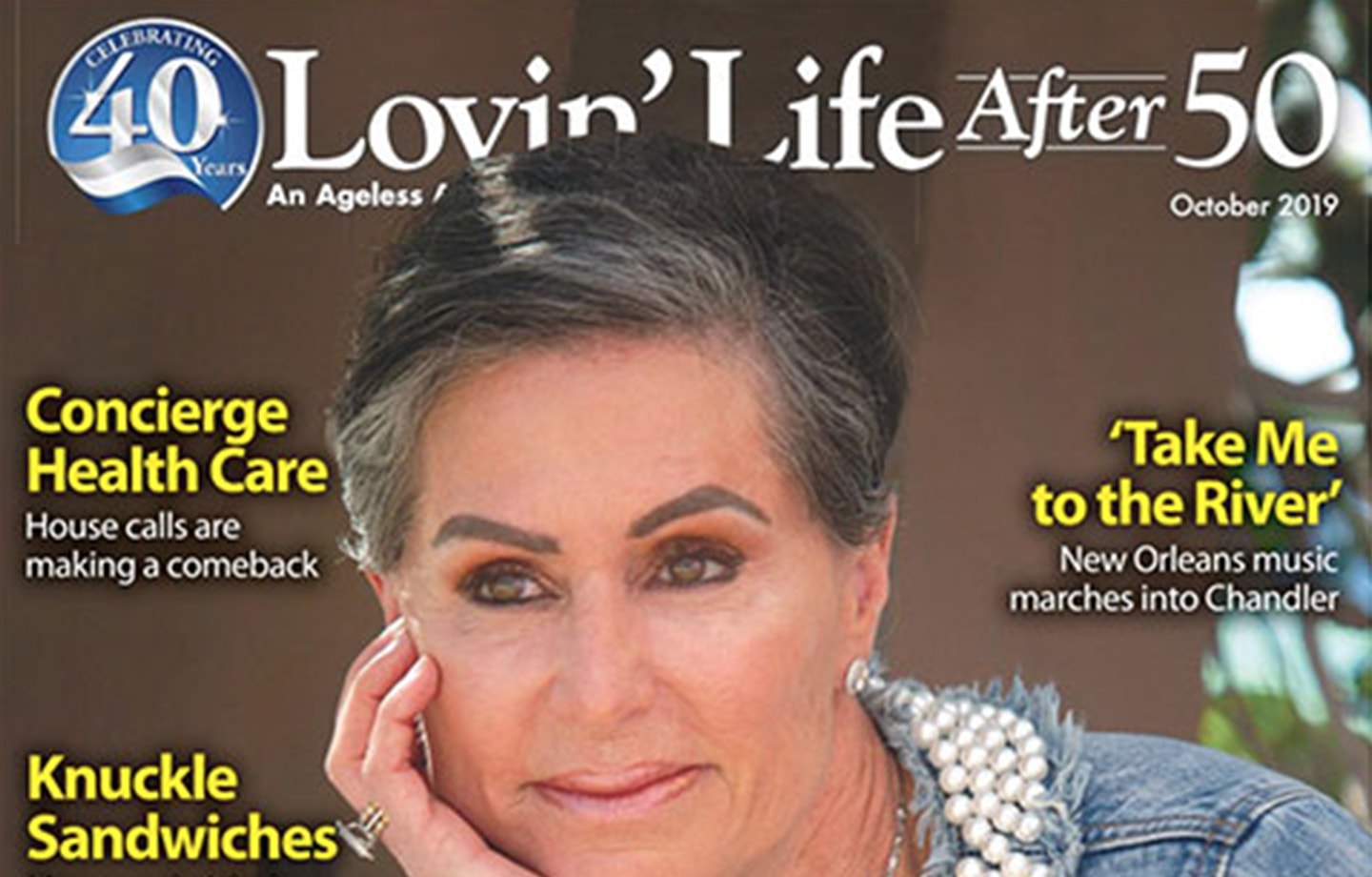Concierge Medicine: Is the service a new trend or back to tradition?
House calls are making a comeback

Originally published in the October 2019 edition of ‘Lovin’ Life After 50’ by Melanie Sealy
Valley resident Lee Bowman is an active 83-year-old who actually enjoys seeing the doctor—especially because her physician comes to see her.
Bowman stumbled onto a concierge practice after her family doctor retired 10 years ago. At the time, Bowman’s husband was bedbound, suffering from dementia, and unable to communicate verbally.
A physician coming to their home to manage and coordinate his care was a welcome and necessary change. Through the concierge program, her husband was monitored via blood draws, electrocardiograms and portable X-rays without having to be transported to an office or hospital. After Bowman passed away, Lee moved to the Valley and found a new and comprehensive concierge program with Consolaré Primary Care.
“I have been very pleased and very comfortable with having this kind of access to my doctors because they are very attentive and I’m monitored very closely,” Bowman says.
“I’d say that’s probably the best advantage for me as an elderly person without much family support or people to go to the doctor with me.”
She benefits from Consolaré’s wide range of services, including 24/7 MD access, in-home physician visits and blood draws, specialist care coordination, and medication management across providers. They’ll even review medical bills from other providers to ensure accuracy. Bowman was impressed that her concierge physician accompanies her to specialist appointments.
“I have the advantage now to have a real physician go with me to a doctor for specific studies,” Bowman says. “Although I’m not totally ignorant on medicine, it’s very good to have a physician come with you and ask the right questions.”
She no longer has to drive 45 minutes to her former doctor’s office; now the doctor comes to her.
“I need at my age to keep an eye on a whole bunch of stuff, so I stay in good health and we aren’t going back and correcting something that should have been resolved sooner.”
Concierge medicine—also known as direct patient care or retainer medicine—has many options for consumers. The practices vary widely in fees and services with programs available across the country. These are personalized care models in which a patient pays a periodic fee to a physician for a significantly enhanced level of service. Health insurance is maintained for all other health care needs such as specialists, procedures and hospitalization. Medicare and health insurance plans currently do not cover concierge physician fees.
Bowman’s physician, Dr. Nadya Wayment, explains concierge practice is different from the standard high-volume practice in every way. In the concierge model, the physician dictates the volume of patients that allows high-level personalized care for patients to manage every detail of their health and allows her time for close attention to preventative medicine. Wayment made the transition to concierge medicine this year. She says there’s no time for this level of attention in the standard high-volume practice.
“This is a practice that every patient can benefit from because there is not a standard approach to every patient; it’s very individualized. The physician has the time and ability to put the frame together, to figure out any answer to any question for a particular patient,” Wayment says.
While the concierge medicine model is growing in popularity, it’s not new. Wayment says the traditional primary care model was built around taking care of the patient—doctors made house calls, managed chronic disease, performed acute care, and carefully managed all medications. The family doctor knew every detail of the patient’s health. The concierge model is this traditional approach to medicine.
Bowman advises her friends to find a concierge practice but says many of them have been seeing the same doctor for years and they aren’t willing to change. She is concerned about her friends who drive long distances and see multiple doctors with little coordination or communication between them, especially on prescribed medications.
“As long as I can afford it, I will have a concierge doctor,” she says. “The care is far more intensive, we’re in touch quite a bit, and they are really on top of it. Their goal is to keep me at my peak performance.”
